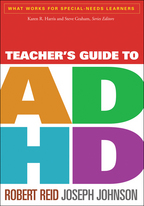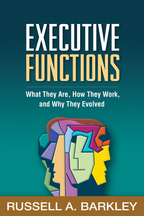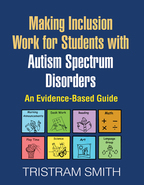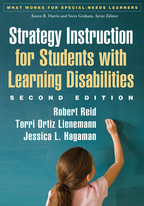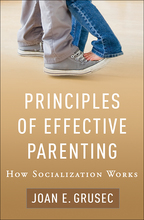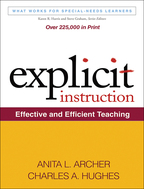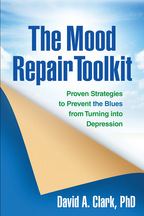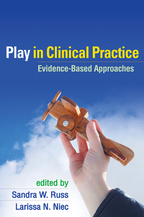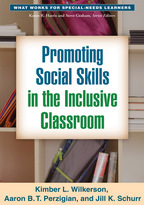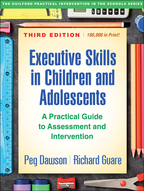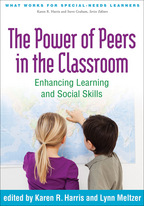Teacher's Guide to ADHD
Robert Reid and Joseph Johnson
Paperbacke-bookprint + e-book
Paperback
orderOctober 7, 2011
ISBN 9781609189792
Price: $43.00274 Pages
Size: 7" x 10"
“This book can be used by the school social worker to guide teachers in working with their students. Alternatively, teachers can read about the interventions and implement what seems applicable. The book is easy to read, understand, and follow and would be a useful hands-on tool in any social worker's office.”

—School Social Work Journal
“This book sets a new standard. Reid and Johnson do a superb job of translating current ADHD theory and research into practical, step-by-step recommendations for educators. The book dispels common myths while providing accurate, up-to-date information. Everything teachers need to know about ADHD is covered, including the use of functional behavioral assessment to design effective behavioral interventions and strategies for addressing academic and social difficulties and enhancing student self-regulation. This is an outstanding guide for general and special education teachers at any stage of their careers, and will be a useful text in teacher preparation programs.”

—George J. DuPaul, PhD, Department of Education and Human Services, Lehigh University
“Given the prevalence of ADHD and the trend toward including these students in general education classrooms, virtually every teacher has one or more students with ADHD. Most teachers, through no fault of their own, are not equipped to deal with the complexities of managing the behavior and learning problems that such students present. Fortunately, this book does just what the title suggests—it guides the teacher toward creating more productive learning environments for students with ADHD. Drawing on the most current theory and research, Reid and Johnson present with clarity what teachers need to do to help students with ADHD achieve their academic and social potentials.”

—Daniel P. Hallahan, PhD, Charles S. Robb Professor of Education and Director of Doctoral Studies, Curry School of Education, University of Virginia
“This book is uniquely tailored for educators working with children who have ADHD. It reflects current, evidence-based approaches to instruction, intervention, and family collaboration in a manner that is highly practical and useful. Coverage of instructional and behavioral interventions for use in classroom settings is stellar. The style of presentation is remarkably clear, straightforward, and easy to read. I strongly recommend this book for all educators at the elementary and secondary levels, as well those who are preparing for the profession.”

—Thomas J. Power, PhD, ABPP, Director, Center for Management of ADHD, The Children's Hospital of Philadelphia; Professor of School Psychology in Pediatrics and Psychiatry, Perelman School of Medicine, University of Pennsylvania
“This is one of the most comprehensive, accessible, and useful books on meeting the needs of students with ADHD. Current, conceptually sound, clearly written, and practical. The authors apply key research on ADHD to practical considerations about how to improve students' outcomes. No important issue is left untreated. It will be an indispensable resource for teachers, school psychologists, behavior consultants, and researchers.”

—Deb Smith, PhD, Assistant Principal, Lincoln (Nebraska) Public School District
—School Social Work Journal
“This book sets a new standard. Reid and Johnson do a superb job of translating current ADHD theory and research into practical, step-by-step recommendations for educators. The book dispels common myths while providing accurate, up-to-date information. Everything teachers need to know about ADHD is covered, including the use of functional behavioral assessment to design effective behavioral interventions and strategies for addressing academic and social difficulties and enhancing student self-regulation. This is an outstanding guide for general and special education teachers at any stage of their careers, and will be a useful text in teacher preparation programs.”
—George J. DuPaul, PhD, Department of Education and Human Services, Lehigh University
“Given the prevalence of ADHD and the trend toward including these students in general education classrooms, virtually every teacher has one or more students with ADHD. Most teachers, through no fault of their own, are not equipped to deal with the complexities of managing the behavior and learning problems that such students present. Fortunately, this book does just what the title suggests—it guides the teacher toward creating more productive learning environments for students with ADHD. Drawing on the most current theory and research, Reid and Johnson present with clarity what teachers need to do to help students with ADHD achieve their academic and social potentials.”
—Daniel P. Hallahan, PhD, Charles S. Robb Professor of Education and Director of Doctoral Studies, Curry School of Education, University of Virginia
“This book is uniquely tailored for educators working with children who have ADHD. It reflects current, evidence-based approaches to instruction, intervention, and family collaboration in a manner that is highly practical and useful. Coverage of instructional and behavioral interventions for use in classroom settings is stellar. The style of presentation is remarkably clear, straightforward, and easy to read. I strongly recommend this book for all educators at the elementary and secondary levels, as well those who are preparing for the profession.”
—Thomas J. Power, PhD, ABPP, Director, Center for Management of ADHD, The Children's Hospital of Philadelphia; Professor of School Psychology in Pediatrics and Psychiatry, Perelman School of Medicine, University of Pennsylvania
“This is one of the most comprehensive, accessible, and useful books on meeting the needs of students with ADHD. Current, conceptually sound, clearly written, and practical. The authors apply key research on ADHD to practical considerations about how to improve students' outcomes. No important issue is left untreated. It will be an indispensable resource for teachers, school psychologists, behavior consultants, and researchers.”
—Deb Smith, PhD, Assistant Principal, Lincoln (Nebraska) Public School District

